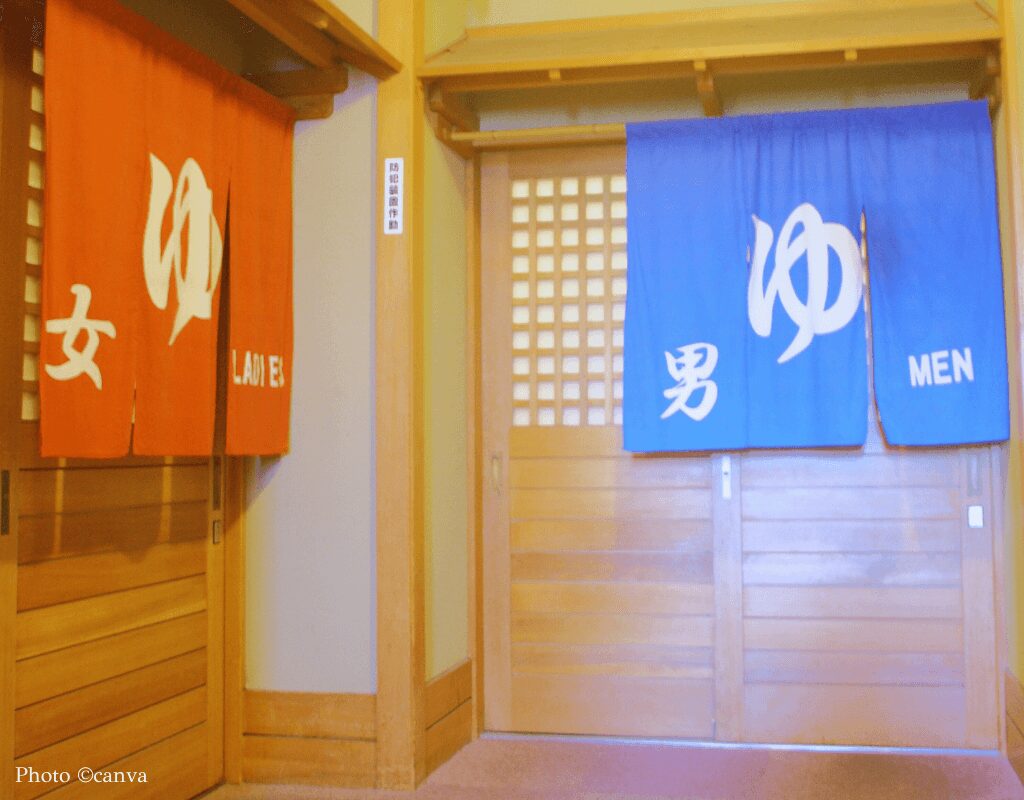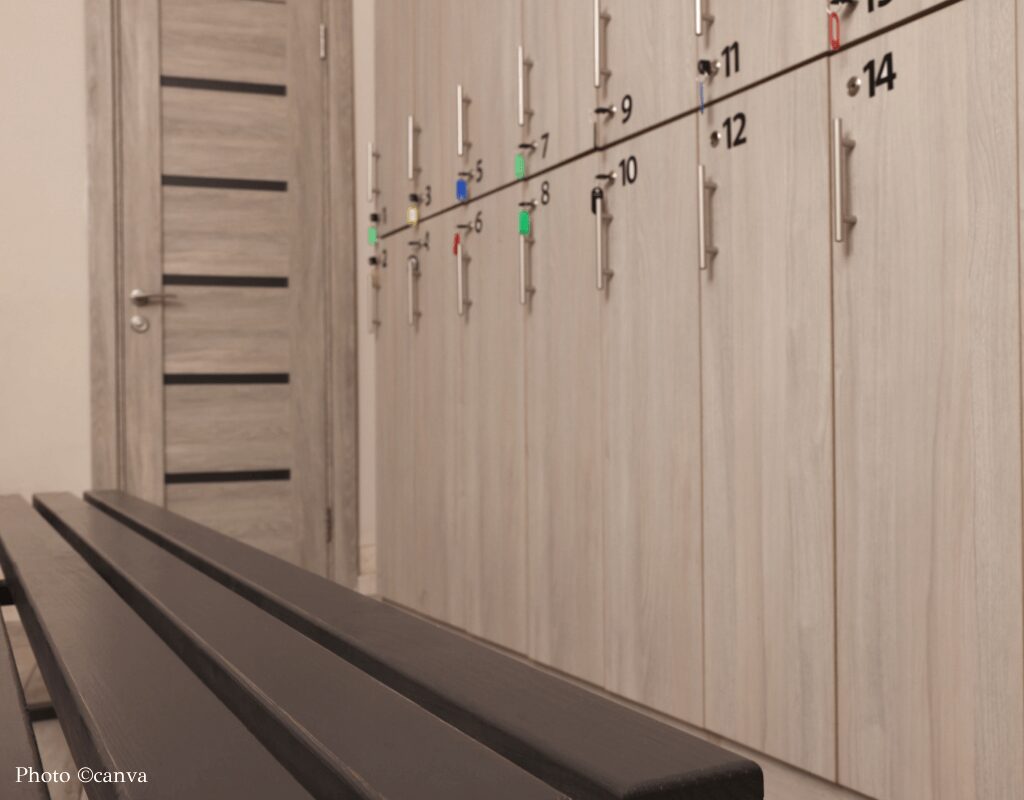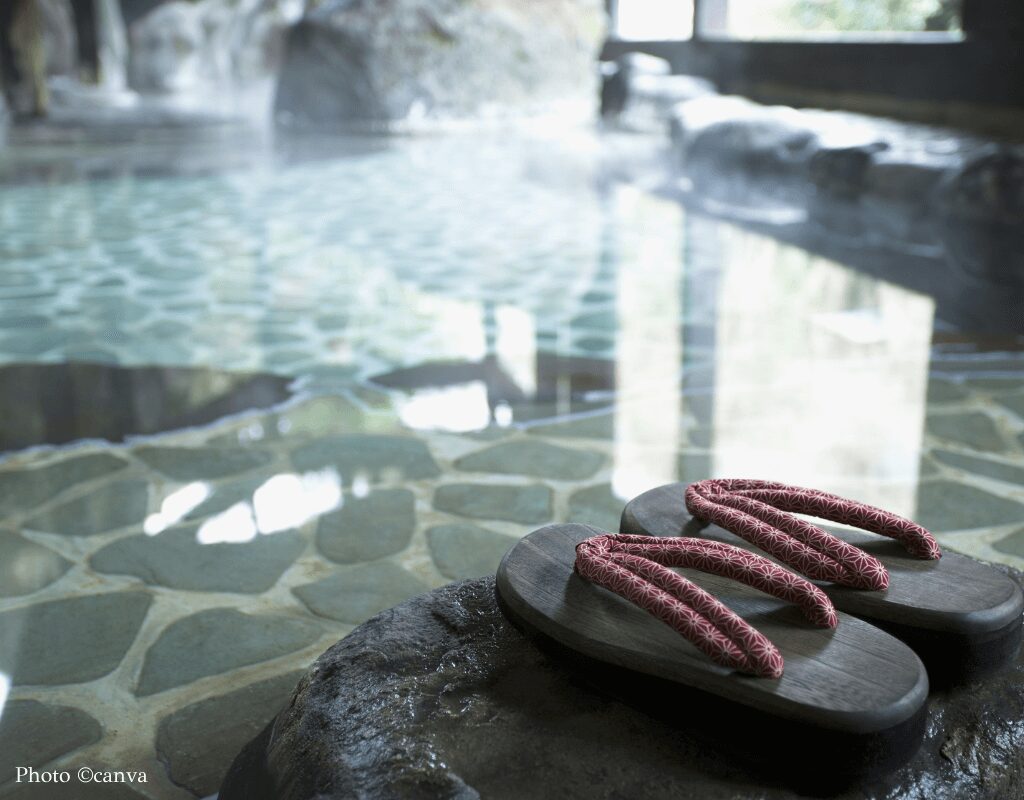1.2K
Onsen etiquette is important in Japan, where people usually bathe without swimsuits. While many places now offer private open-air baths, communal baths are still common. This guide covers the basic onsen rules to help you enjoy Japan’s hot springs with confidence.
After checking onsen etiquette, how about exploring some great onsen spots here?
At traditional onsens, you will see noren curtains with the signs “男湯” and “女湯.” “男湯” (otoko-yu) means the men’s bath, while “女湯” (onna-yu) means the women’s bath. Make sure to enter the correct bath based on your gender.

In Japan, people usually bathe in onsens without clothing. That’s why there is a changing room, called 脱衣所 (datsuijo). Many ryokan provide a yukata (light cotton robe) and zori (traditional sandals) for you to wear from your room to the bath. Since outdoor clothes and shoes are not allowed in the bathing area, change into the provided attire before heading to the onsen.
Lockers are available in the changing area to store your clothes. Take only a small towel and any toiletries you need. Some onsens provide towels, while others ask you to bring one from your room—check the facility’s rules. Leave large towels in your locker, as they are for drying off after bathing. It’s best to keep valuables in your room or in a locker’s safety box.

Before entering the bath, find a shower station with a stool and showerhead. Pour warm water over your body to rinse off dust and dirt. Skipping this step can make the bathwater dirty and disturb others.
Onsen water is usually around 40–44°C, so rinsing your body first also helps your body adjust to the temperature and reduces strain on your heart.

When washing your body, always sit on the provided stool. Standing while showering can splash water and soap onto others. Be mindful of those around you and wash carefully.
When soaking in the onsen, do not bring your small towel into the water. Towels can carry germs even after washing, which can dirty the water and disturb others. Also, women should tie their hair up to avoid it touching the water. Be mindful of these practices to keep the bath clean for everyone.
An onsen is not a pool, so running, diving, or swimming is not allowed. Speaking loudly can also disturb others, so keep your voice down. Be aware that the floors in the onsen can be slippery, so move carefully to avoid accidents.
After using the stool or wash basin, rinse it with water for the next person. Also, check the area where you washed and make sure there is no soap left. Rinse away any remaining foam to keep the space clean.
After your bath, use the small towel you brought to lightly dry off before heading back to the changing area, so you don’t get the floor wet. Once you’re mostly dry, go to your locker and use the large towel to dry your body and hair completely.
Onsen etiquette is key to enjoying a respectful and relaxing experience. By following these simple rules, you help maintain a clean and peaceful environment for everyone. Whether you’re visiting a traditional onsen or a modern ryokan, being considerate of others will make your time in the hot springs more enjoyable.
